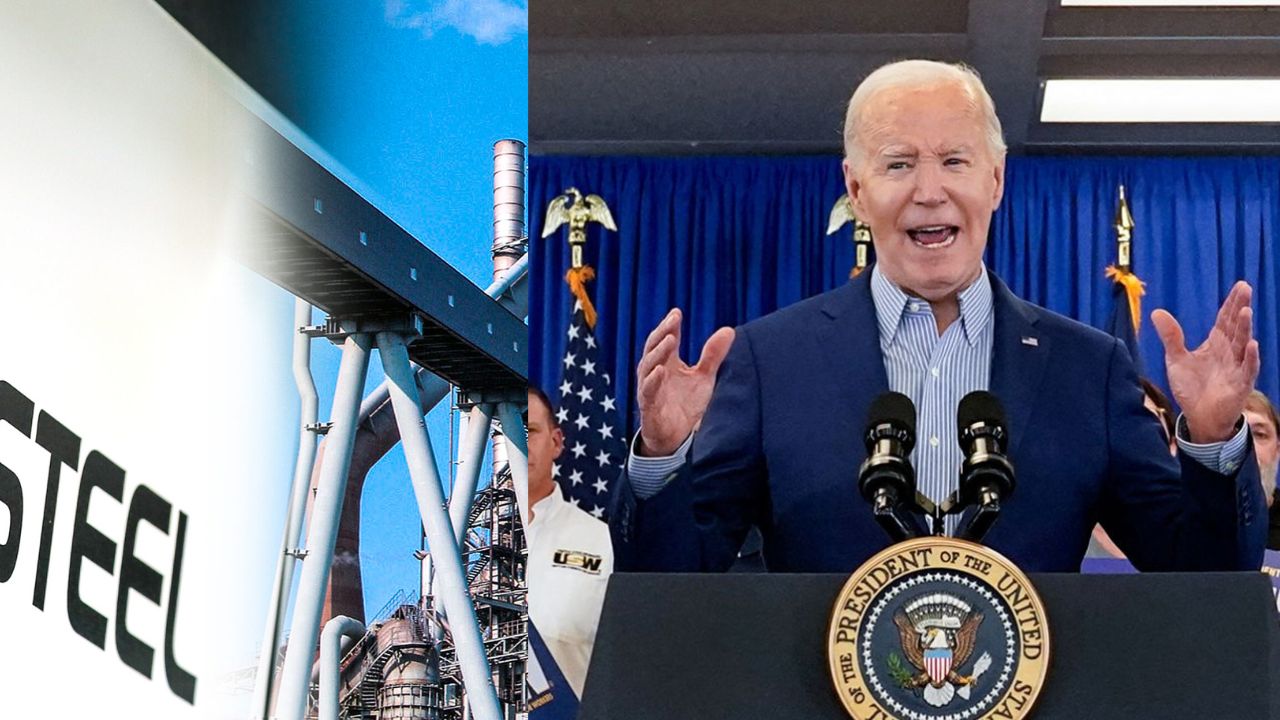President Biden addressed cheering, unionized steelworkers on Wednesday, signaling his administration’s intent to block the acquisition of U.S. Steel by a Japanese firm. He also advocated for tripling tariffs on Chinese steel, aiming to court working-class votes in Pennsylvania, a crucial battleground state. In his speech at the headquarters of United Steelworkers in Pittsburgh, Biden emphasized the historical significance of U.S. Steel, asserting it should retain its American identity.
The proposed acquisition of U.S. Steel by Japan’s Nippon Steel is under scrutiny by administration officials, with Biden expressing opposition last month. He stressed the importance of maintaining U.S. Steel as a domestically owned and operated American company.
Addressing a union audience, President Biden amplified his commitment to potentially block the acquisition, asserting, “American-owned, American-operated by American union steelworkers — the best in the world — and that’s going to happen, I promise you.” Additionally, he unveiled plans to advocate for heightened tariffs on Chinese steel and aluminum, aiming to safeguard American producers from a surge of inexpensive imports.
Biden’s emphasis on steel underscores the convergence of international trade policy with his reelection campaign, although the White House clarified that the measures were primarily aimed at shielding American manufacturing from unfair trade practices abroad, rather than simply rallying union support. Currently set at 7.5%, the proposed tariffs could escalate to 25% under Biden’s plan.
He instructed his trade representative to pursue this increase, while maintaining separate tariffs of 10% on aluminum and 25% on steel.
The U.S imported approximately $6.1 billion worth of steel products, with only 3% originating from China, as per Census Bureau data, In the 12 months leading up to February 2023.
The American Iron and Steel Institute noted that due to existing trade barriers, China’s share of U.S. steel imports was even lower at 2.1%, ranking it as the seventh-largest foreign source of steel for the U.S. Despite these figures, a senior administration official expressed concerns about potential increases in Chinese exports, citing them as grounds for implementing higher tariff levels as a precautionary measure.
Liu Pengyu, a spokesman for the Chinese Embassy in Washington, criticized the U.S.’s pursuit of increased tariffs, labeling it as a recurring mistake. He further characterized the existing tariffs as examples of U.S. unilateralism and protectionism. President Biden defended the tougher stance on China, emphasizing its importance in preventing the exportation of advanced technologies that could compromise national security.

